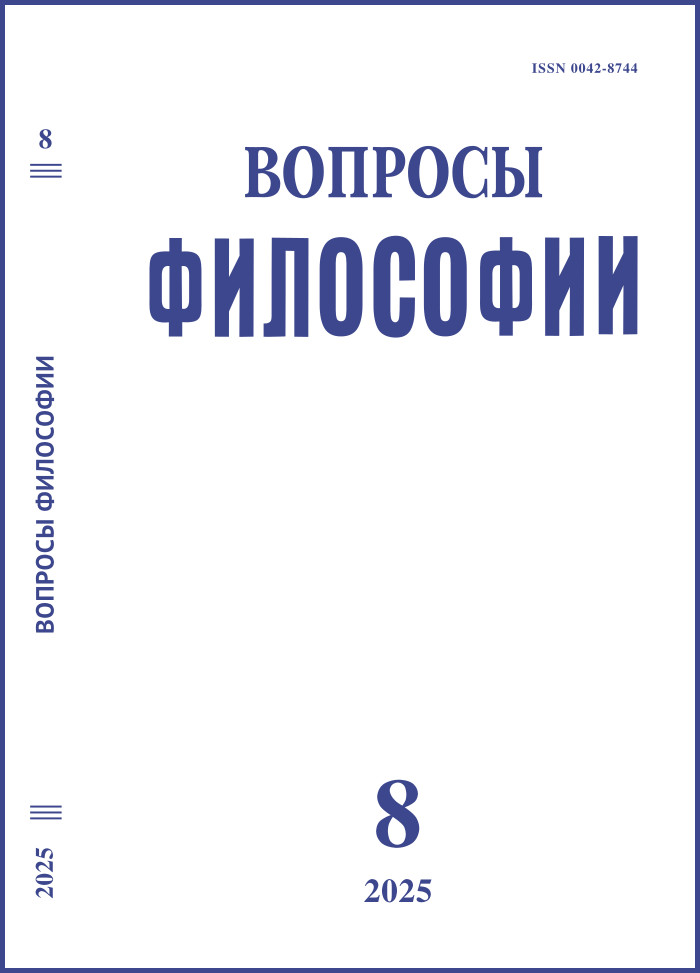Ethical/political “Lens” of Ancient Chinese Philosophy
DOI:
https://doi.org/10.21146/0042-8744-2025-8-165-176Keywords:
ancient Chinese philosophy, ethics, politics, practical, features, specificity, universal ethicalityAbstract
The article discusses the concept of “universal ethicality” introduced by A.I. Kobzev as a specific characteristic of Chinese philosophy (along with the undeveloped idealistic doctrines and undeveloped formal logic, the role of which was taken over by numerology). It clarifies and specifies its meaning, – with the relevant illustrative material, – in relation to ancient Chinese philosophy. It points out that
1) for the case of ancient Chinese philosophy one should rather speak of universal “politicality” or “ethicality-plus-politicality”, which can vary in the degree of presence of ethical and political components. The article also stresses 2) the deliberate and explicit character of Ancient Chinese “ethicalized” and/or “politicalized” conceptions. These two points are illustrated by three cases: 1) attitude of the ancient Chinese philosophical mainstream to the “sophists” (negative, primarily by practical considerations); 2) ancient Chinese concepts and theories of “good” knowledge (Confucian concept of ‘knowing human beings’), criteria of truth (Mohist ‘three standards’) and “good” science (Huainanzi conception of ‘three-five’) etc.; 3) ancient Chinese interpretations of “metaphysical” knowledge and its objects (the ‘Heaven’ and the ‘Way’). The article also questions the extent to which “universal ethicality” can be considered a distinctive feature of ancient Chinese philosophy and suggests that it can only be such in relation to modern philosophy.

